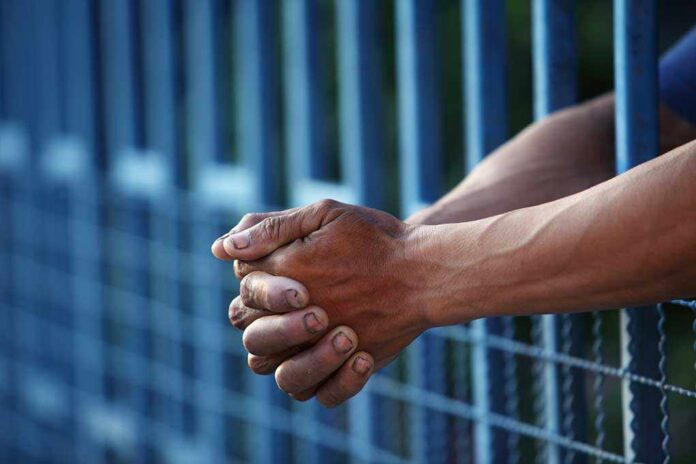When a Texas man crossed state lines to stalk a WNBA star, the justice system finally drew a line in the sand.
At a Glance
- Michael Lewis sentenced to 2.5 years in prison for stalking Caitlin Clark.
- Case highlights the dangers of online harassment escalating to real-world threats.
- Sentence reflects increasing seriousness of legal responses to online stalking.
- Clark’s case underscores vulnerability of public figures to targeted harassment.
Texas Man Sentenced for Stalking WNBA Star
In a case that captured national attention, Michael Lewis, a 55-year-old man from Texas, was sentenced to 2.5 years in prison on July 28, 2025. His crime? Stalking and harassing Caitlin Clark, the celebrated guard for the Indiana Fever. Lewis’s actions were not just a few ill-advised posts; they were a torrent of sexually explicit messages and threats that turned Clark’s life upside down. The seriousness of his crime was underscored by his decision to physically travel from Texas to Indiana, escalating his online harassment to a perceived real-world threat. Such brazen behavior demanded a response that would serve as a warning to others.
The sentencing followed Lewis’s guilty plea in the Marion County court. Lewis, who had developed an “imaginary relationship” with Clark, claimed his actions aimed to expose lapses in her security. Yet, the court saw through this justification, recognizing the profound impact his actions had on Clark. The sentence, though significant, also came with a directive for Lewis to undergo mental health treatment, perhaps a nod to the complex motivations behind such actions.
The Legal and Personal Fallout
The case against Lewis was built swiftly following his January arrest in Indianapolis. Law enforcement’s decisive action was necessary, given the clear escalation from online harassment to physical travel, which could have posed a direct threat to Clark’s safety. The Marion County Prosecutor’s Office, led by Ryan Mears, took the lead in ensuring that justice was served. Clark herself reported feeling fearful and compelled to alter her public behavior due to the harassment, a testament to the profound effects of such unwanted attention.
Clark’s situation is not unique but rather part of a troubling pattern of harassment faced by female athletes. ESPN highlighted a similar case involving Paige Bueckers, another women’s basketball star, illustrating the systemic nature of these threats. The legal system’s response in Clark’s case may set a precedent, signaling to others that such conduct will face severe repercussions.
Implications for Athlete Safety
The ramifications of this case extend beyond the courtroom. It casts a spotlight on the vulnerabilities that high-profile athletes, particularly women, face in today’s digital age. The combination of a large public profile and the accessibility provided by social media creates fertile ground for such incidents. As a result, sports organizations are likely to revisit and bolster their security measures to protect their players from similar threats.
The broader discourse around this case also touches on the responsibilities of social media platforms in monitoring and curtailing such behavior. The debate on how to effectively manage online spaces to prevent harassment without infringing on free speech continues to evolve. Meanwhile, the psychological dimensions of stalking highlight the need for comprehensive mental health interventions for perpetrators.
A Wake-Up Call for Legal and Social Systems
The sentence handed to Lewis is more than just a punitive measure; it is a call to action. It underscores the need for a robust legal framework that holds perpetrators accountable while providing victims with the protection they need. For Caitlin Clark, the sentence brings a measure of justice and, hopefully, peace, allowing her to continue her career with renewed focus and security.
As such cases become more visible, they fuel a necessary conversation about the safety of women in sports and public life. They also challenge institutions to adapt and respond to the evolving landscape of threats posed by digital communication. The hope is that this case, and others like it, will lead to a safer and more supportive environment for all athletes.
Sources:











